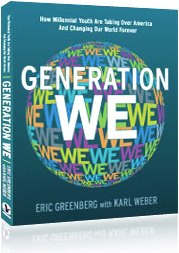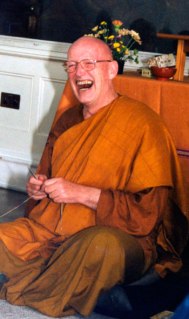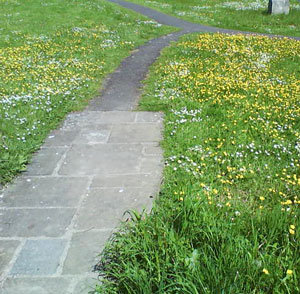Psychologist Elisha Goldstein offers a quick meditation practice to reduce stress and calm the mind - it's easy and can be done anywhere. Goldstein is the author of The Now Effect: How a Mindful Moment Can Change the Rest of Your Life and A Mindful Dialogue: A Path Toward Working with Stress, Pain and Difficult Emotions (Kindle only), and co-author of A Mindfulness-Based Stress Reduction Workbook.
One Minute to a Stress-Less Brain
Elisha Goldstein, Ph.D.
Psychologist; Author, 'The Now Effect'; Co-author, 'A Mindfulness-Based Stress Reduction Workbook'
Over the course of the recent election many of us have been inundated with a barrage of data that may have added on to the stress we're already feeling in everyday life. Our brains are designed to handle an increasing amount of complex information, and as more information becomes available, our brains adapt. It may adopt a continuous partial attention, and we can't help but live in shallow noisy waters and lack a sense of awareness and depth of what is the most skillful response to daily stress.
The problem is, this is a recipe for an ongoing stress cycle.
Recent neuroscience and personal stories are indicating that we can not only reverse this stress cycle but may even be able to create a stronger and healthier brain. This is real and powerful. We can train our brains to automatically reconnect to what matters, break free from the limiting stories in our minds, incline our minds toward the good in life and even learn how to relate to our difficult feelings differently to realize an emotional freedom from the confines of our habitual thoughts and reactions.
This is what I call changing the way we think before we think, and this is The Now Effect.
I'm going to introduce to a short and simple one-minute practice that will start to train your brain to access that space of awareness where choice, possibility and opportunity lie.
This is what I call the "BE" practice.
Note: First, see if you can set any judgments aside of whether this practice will or will not "work" for you. Engage this just with the goal of being aware of your experience.
Breathe -- Take a few deep breaths and as you breathe in, know that you're breathing in, and as you breathe out know that you breathing out. The instructions are very simple. You can even say to yourself, "in" as you're breathing in and "out" as you're breathing out. This is meant to pop you out of auto-pilot and steady your mind.
Expand -- This is the process of expanding your attention throughout the body and just feeling the body as it is. You may feel warmth or coolness, achiness, itchiness, tension, tightness, heaviness, lightness or a whole host of sensations. Or perhaps you notice no sensation at all in other areas. When you're here also be aware of how emotions are being expressed in the body. Stress may be tension in the chest or shoulders, calm may be looseness in the back or face. Whatever you notice, just practice allowing to be as it is without needing "to do" anything about it.
That's it! It may sound too simple to be impactful, but again, set your judgments aside, treat this as an experiment and let your experience be your teacher.
Where can you practice?
When you're at work, it's easy for your mind to wander off onto various engaging websites or apps. When you notice this you can just "Breathe" and "Expand" attention to the body grounding to the present moment and in that new-found space of awareness turn to what really matters, such as the project you're trying to get done.
Maybe you're about to fire off an angry text to your partner in all caps after coming home to a sink of dishes; instead of taking that impulsive action this may be a good time to just "BE" and then make a conscious choice of what to do next.
Maybe you find your mind telling you stories about all the work you have to do and how you'll never get it done in time; use the "BE" practice.
Or maybe you're driving to work a few minutes late and someone pulls in front of you, slowing you down; "BE" and then respond from a more collected place.
Set the intention to practice being, breathing and expanding into the body in mini moments throughout the day. The way the brain changes is through intentional practice and repetition just like walking, talking, reading, and riding a bike and this is no different.
To help you remember you might consider posting signs in your environment that say "Just BE," knowing that means to engage in the "BE" practice. Or maybe put a note in your digital calendar to pop up a couple times in the day as a reminder.
The benefits are enormous -- it just takes intention and practice.
As always, please share your thoughts, stories and questions below. Your interaction creates a living wisdom that we can all benefit from.














 During the 20th century, urban environments got taken over by corporate logos. Studies have reported that an average person is exposed to about a hundreds of logos a day.
During the 20th century, urban environments got taken over by corporate logos. Studies have reported that an average person is exposed to about a hundreds of logos a day.




